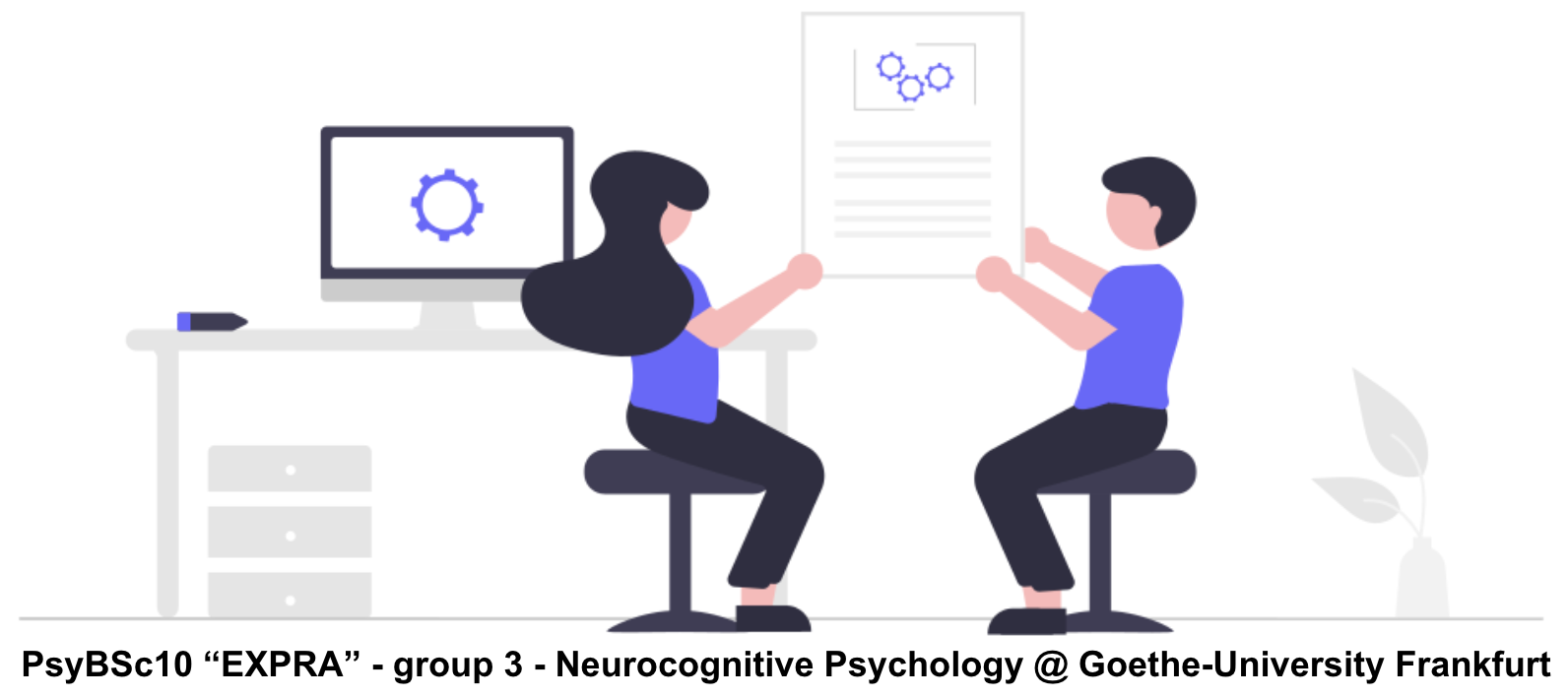Experimentation III
Contents
Experimentation III¶
Within the ninth session we’ll focus solely on the research experiments and their setup to pave the way for the respective transition to more independent work where you’ll use the same experiment framework (stimulus set, paradigm, online platform) to address your own hypotheses using the analyzes we discussed and went through in R.
Topics 💡👨🏻🏫¶
In the following you’ll find the objectives and materials for each of the topics we’ll discuss during this session.
The future is now - research experiments via online platforms¶
We already talked a bit about the experiment but so far we haven’t addressed how it’s actually created and hosted. As mentioned before and you already experienced a while back: we will use an online platform to run the experiment, specifically meadows. To provide some more insights and a better understanding we will briefly talk about online experiment settings, as well as pros/cons and then spend a closer look on how our experiment is setup on meadows, including how you can adapt it based on your research projects. Importantly, this will also include some guidelines/hints regarding the research experiment groups including tasks, outline, deadlines, etc. .
Objectives📍¶
learn about online platform for experiments
form research experiment groups
Ask and answer questions
Have a great time
tasks for subsequent meeting 🖥️✍🏽📖¶
The tasks for the subsequent meeting are exclusively related to the research experiment projects, in that they aim to bring you further within the respective processes. As we almost have a month until the next session (minus the holidays and adjacent days of course), there are actually a few tasks but again they should be conducted anyway within the research experiment projects and are hopefully easier this time based on the practice run with the demo experiment.
OSF project¶
As for the demo experiment, each group should create an OSF project for their research experiment project, including the same aspects. Thus, you can basically copy-paste most of the demo experiment OSF project (e.g., the different integrations, different components, etc.) and just update the description. This also includes the creation of an open zotero library.
Pre-registration¶
The pre-registration should be completed before you start acquiring data to follow real-world settings and the actual idea of a pre-registration as closely as possible. Once you have your research question and hypotheses ready, do the pre-registration and get the respective time-stamp. Again, should you have questions, please just ask the instructor.
Data management plan¶
After going through the demo experiment in more detail you should have a much better understanding of the data you will be acquiring and analyzes you will be conducting. Ideally, the processes of doing the pre-registration and writing the DMP should go hand in hand and inform one another. As usual, don’t hesitate to ask questions!
Journal club presentations¶
One part of the research workflow is the presentation and discussion of research ideas, hypotheses and experiment setups. To also include this aspect we will have two journal clubs within which each research project group will present their ideas and hypotheses in ~ 20 min presentation, as well as provide feedback for the other groups. Importantly, every group member should do a 5 min summary of a paper that was utilized to form the research questions and derive hypotheses, i.e. prior literature on the topic.
